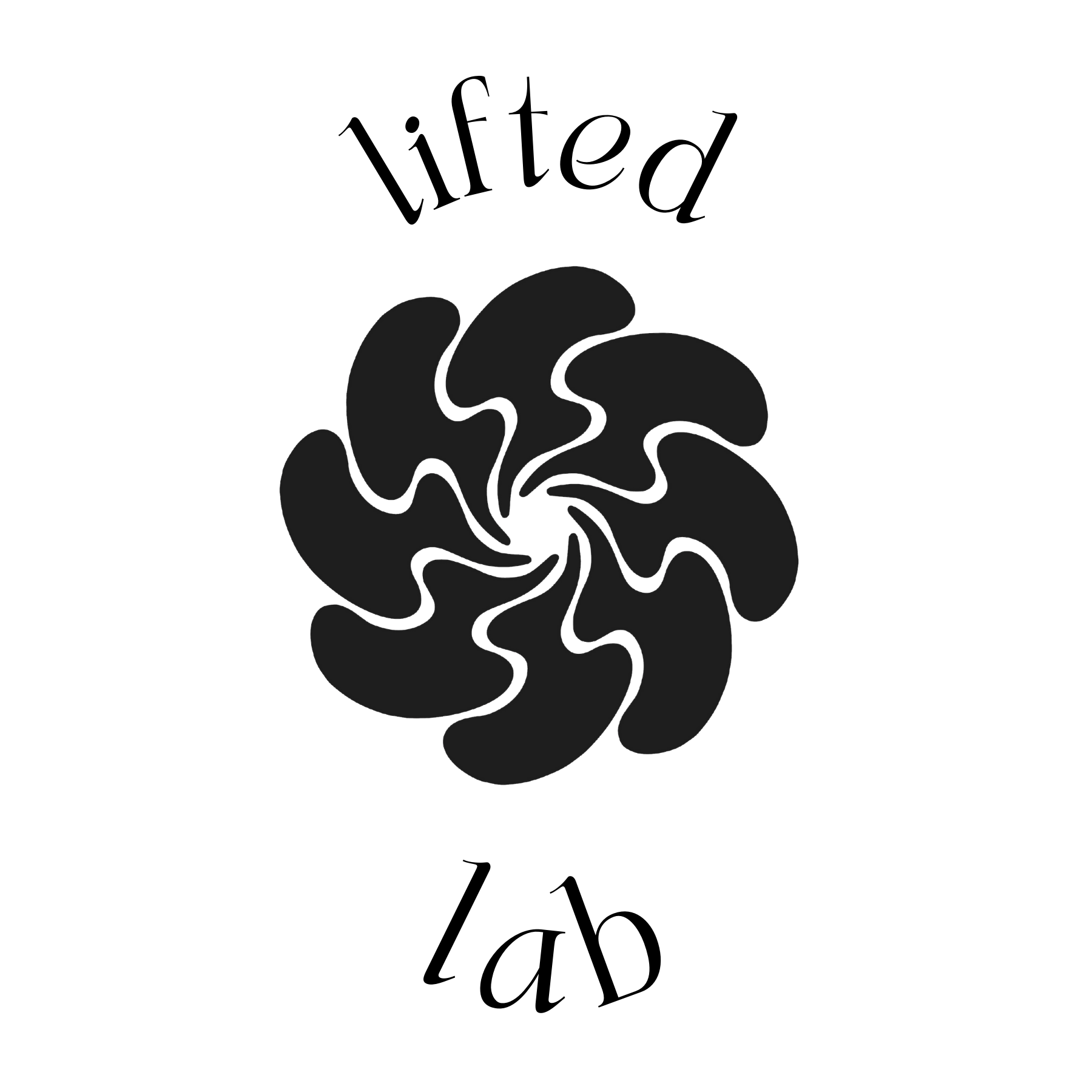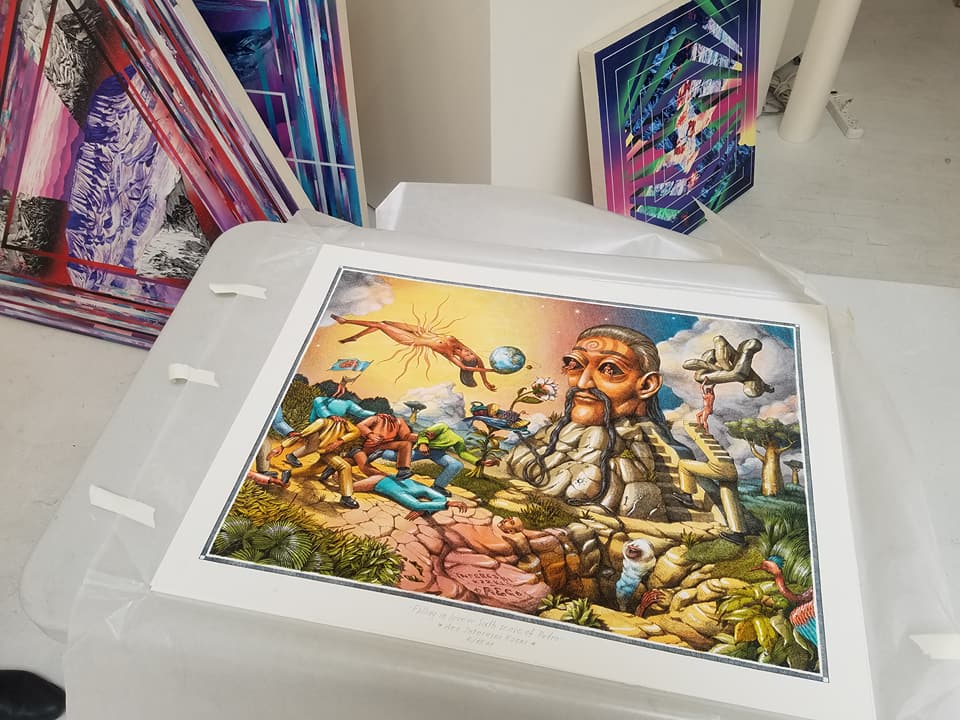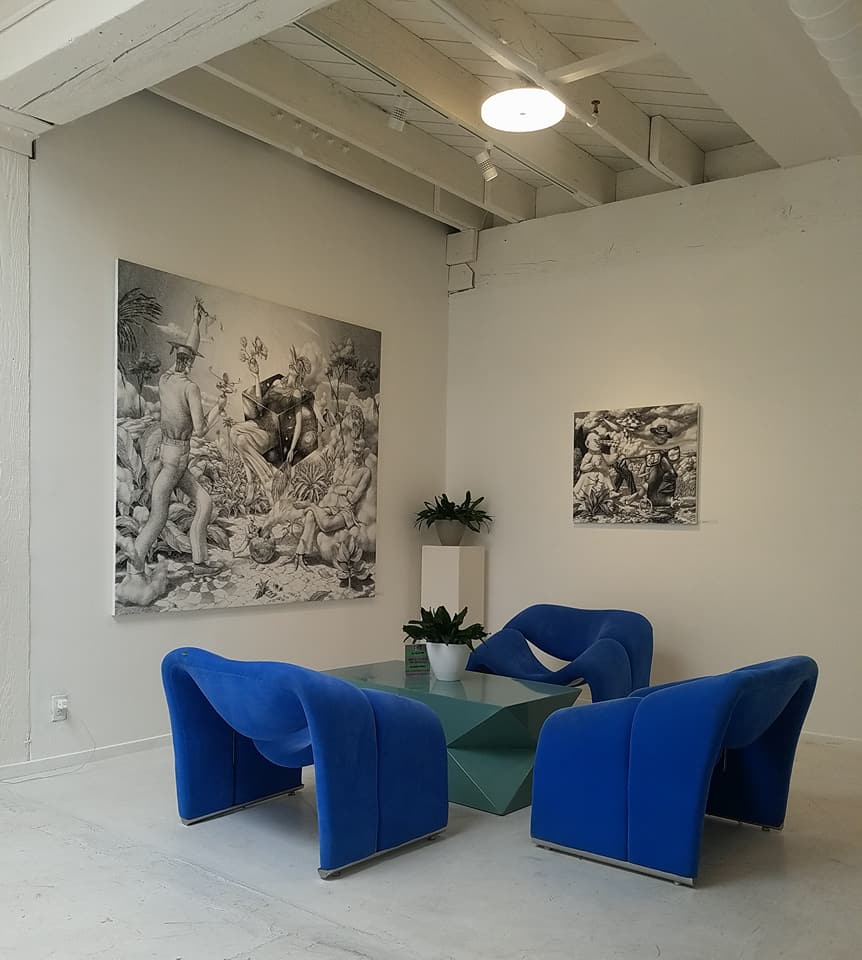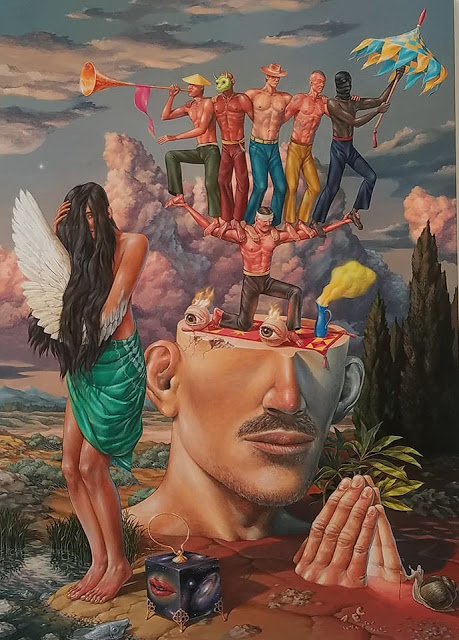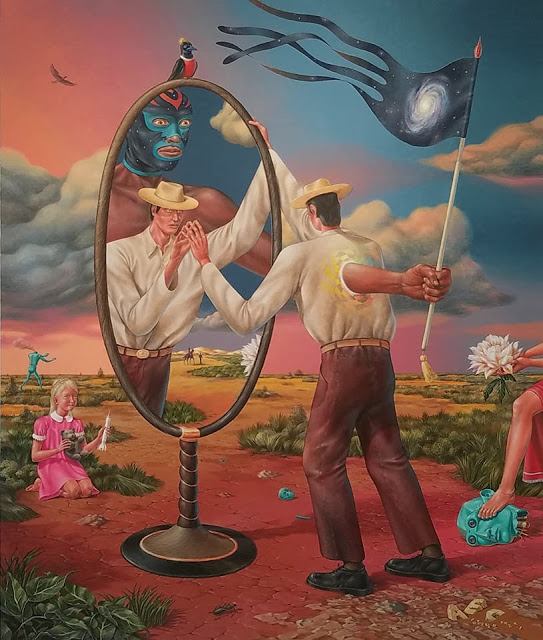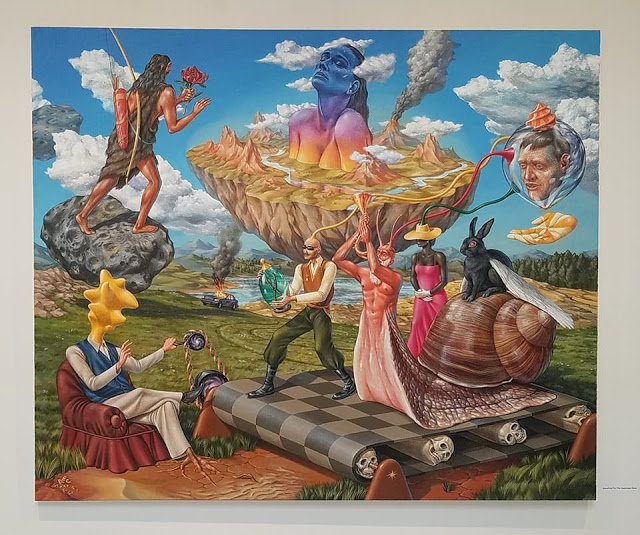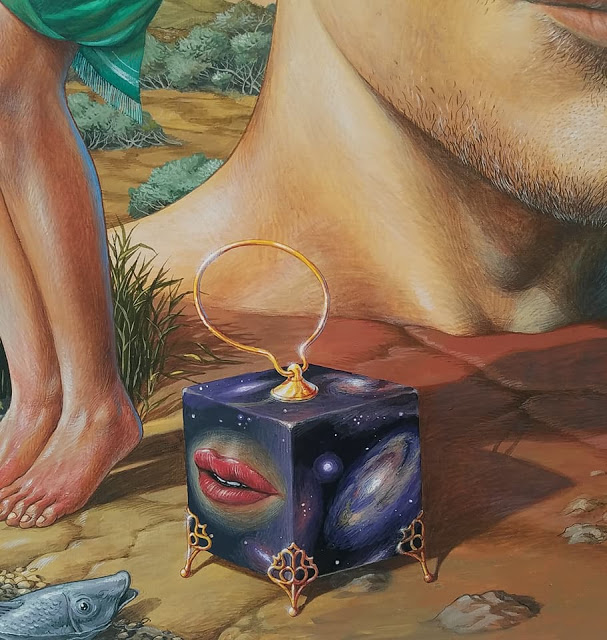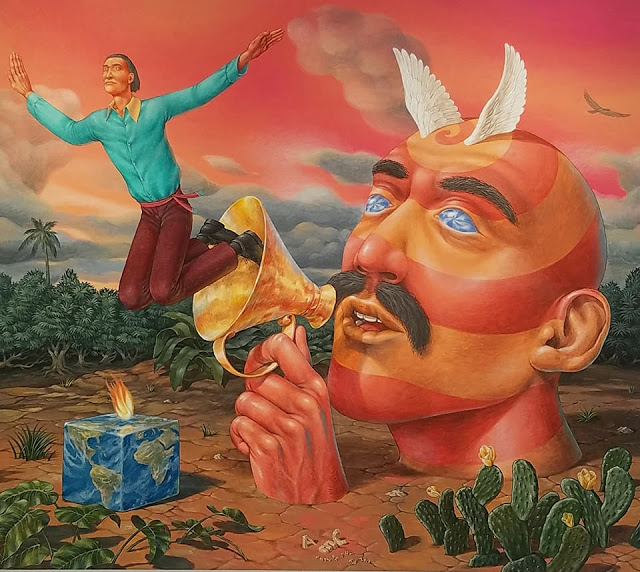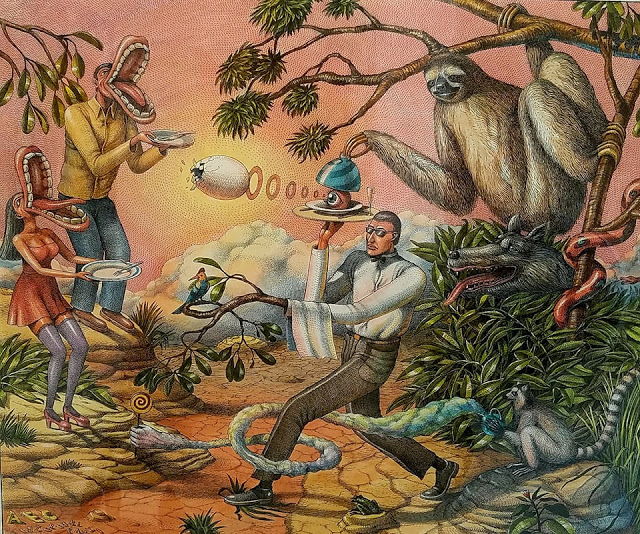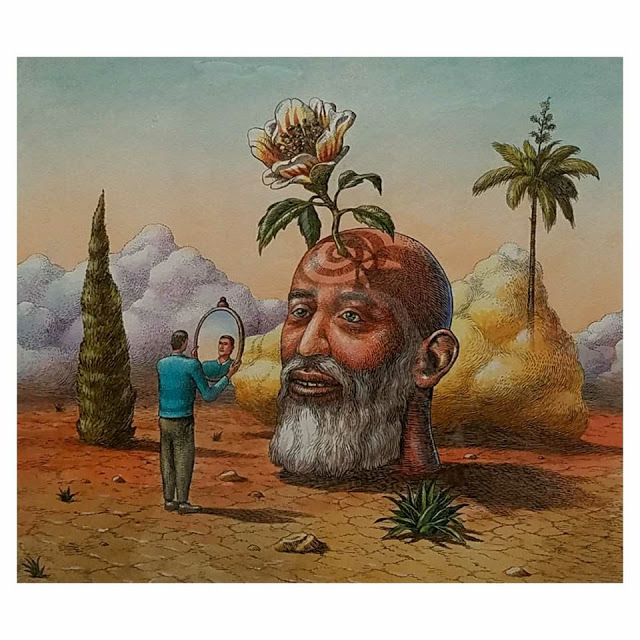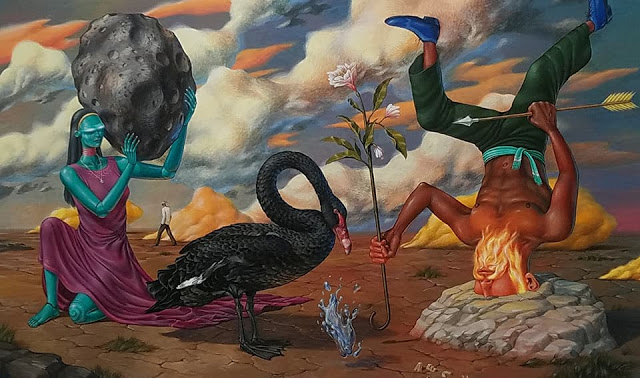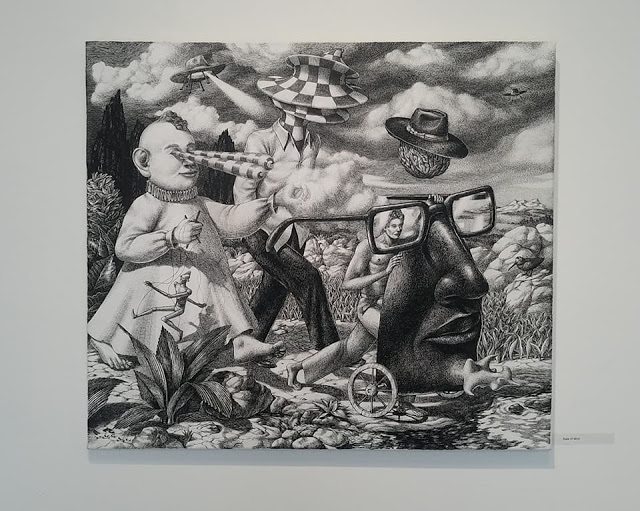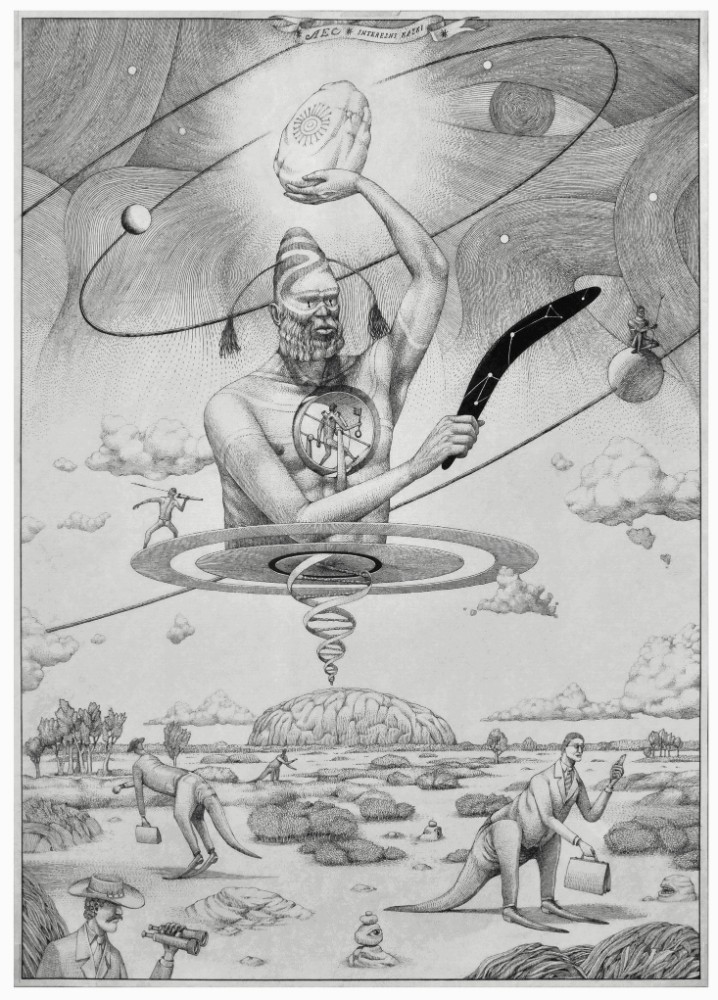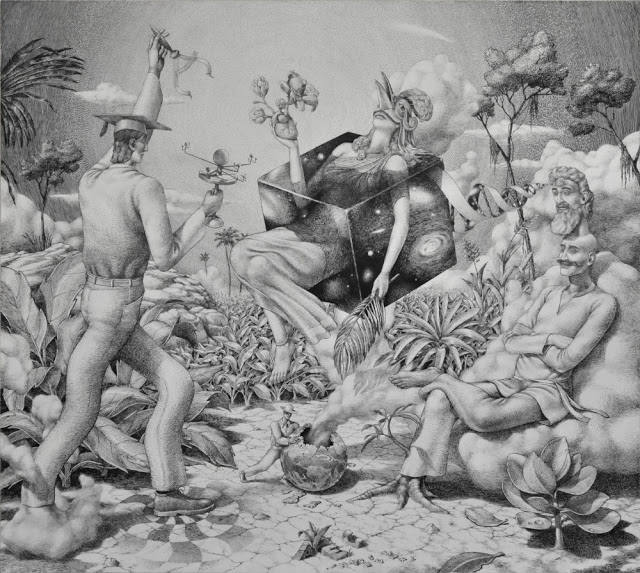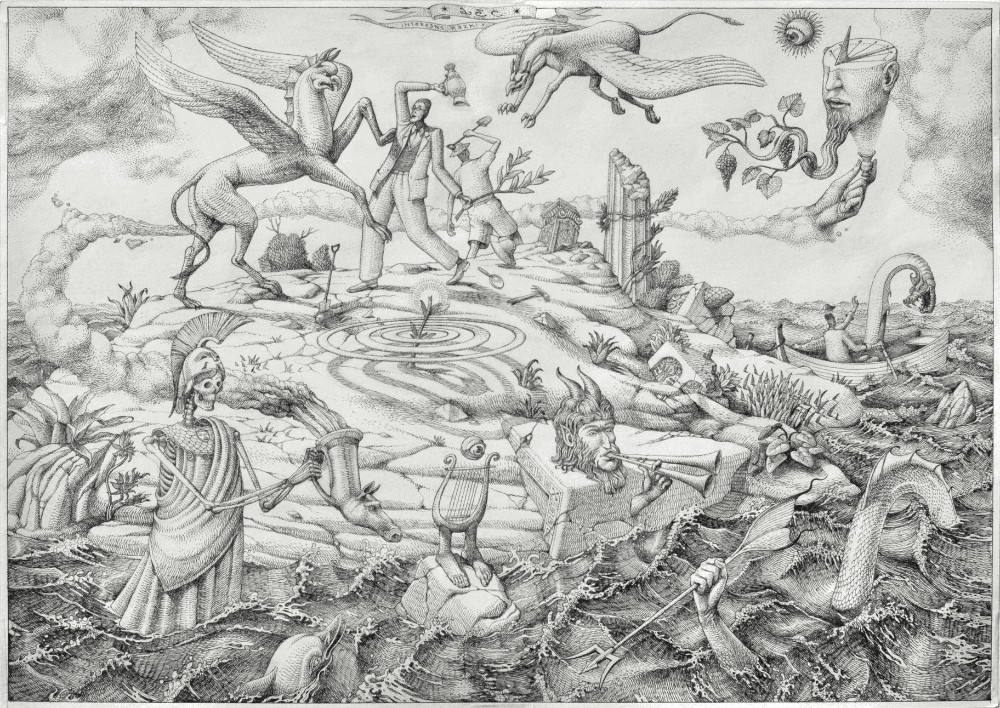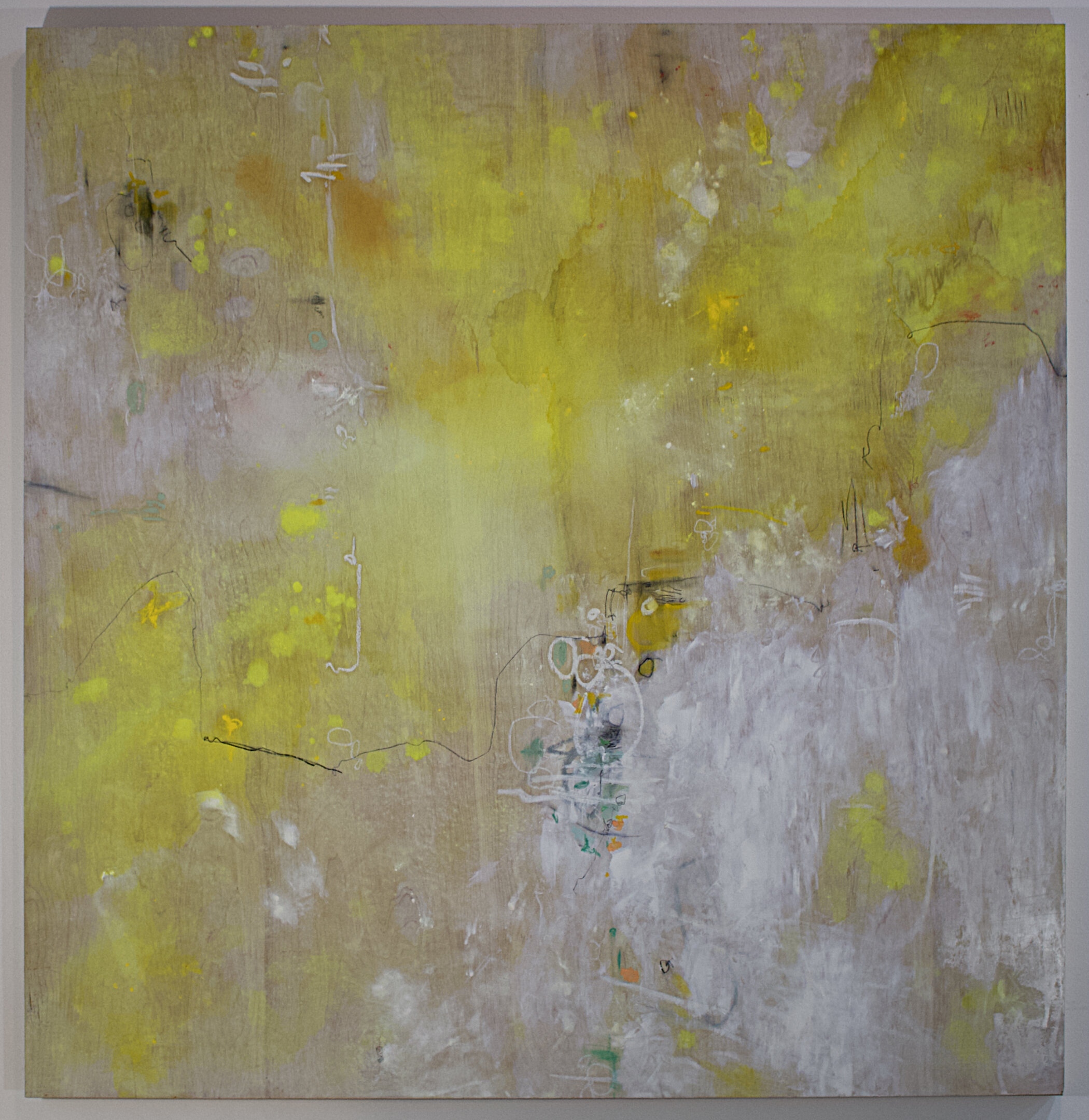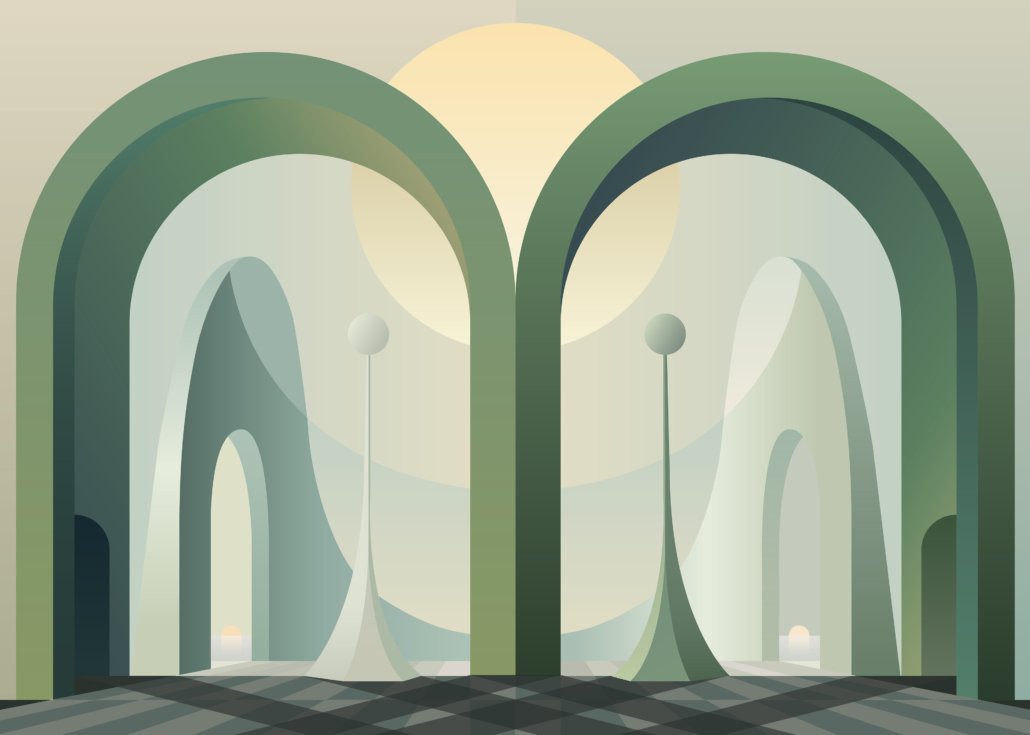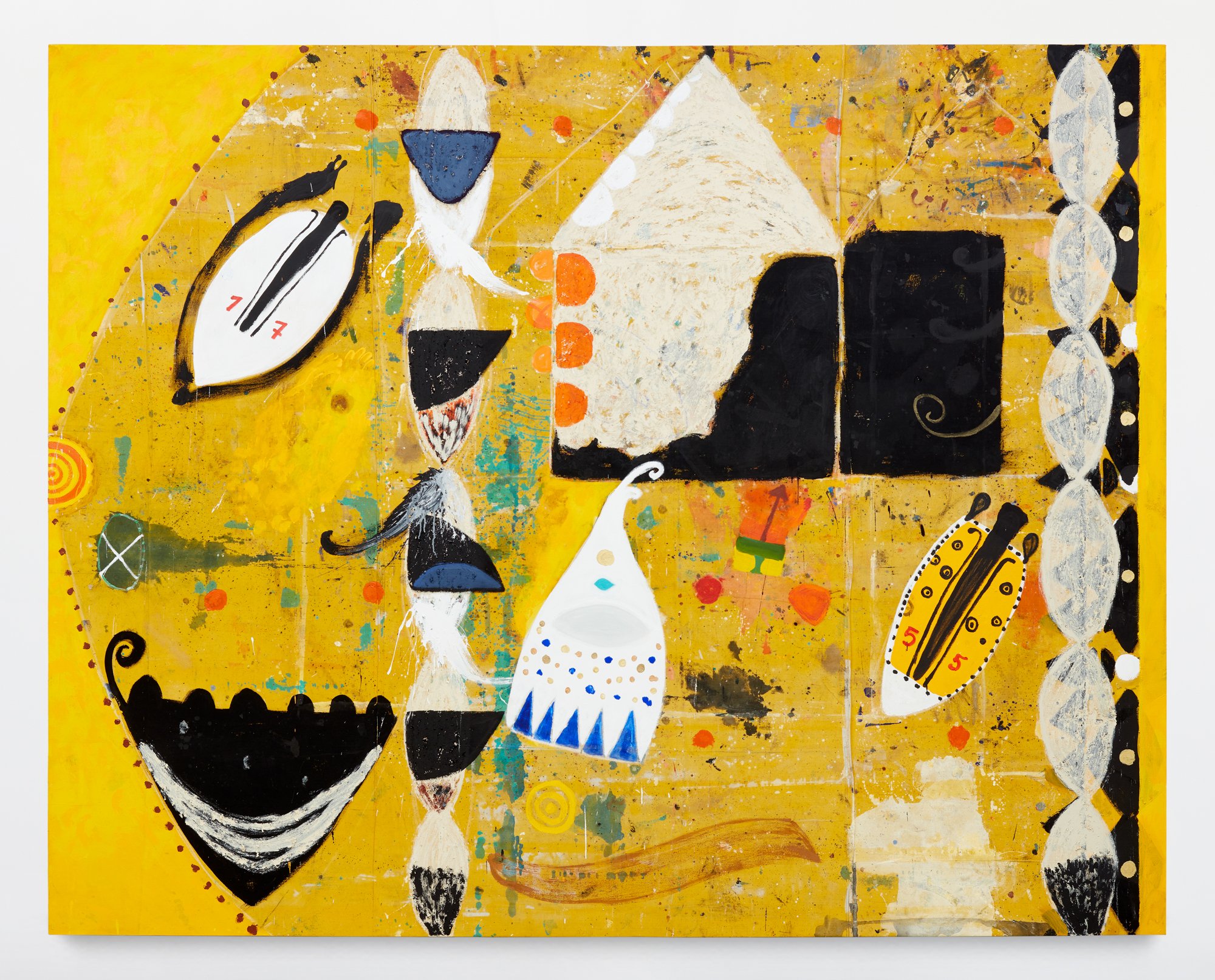AEC Interesni Kazki at Mirus Gallery
"The Earth is Flat." The stars are holes in the veil of night. The crocodile is the keeper of the underworld. The north pole is a pyramid shaped mountain from which the oceans of the world pour out. These archaic concepts that were once collective truths have been replaced. Today we look at the scientific and religious dogma of the past with the same amusement that our descendants will one day look at us. Theories are reality until proven otherwise. Earthly existence is awash with depth and mystery, but it’s hard for us humans to live in the dark unknowing. We seek answers, and if no evidence, we speculate. Beliefs are fickle, ideas are fluid and now the technological bandwagon is careening ahead so quickly most can’t keep up with its developments.
We are living in the information age and a time of great technological inequality. The economic and
educational benefits of our inventions only reach those who can afford them. The divide is problematic but on the bright side allows other worlds to exist within this one. There is diversity of thought in disparity and old ideas persevere. Through exploring the planet one can see that the past, present and future coexist. The earth is now in fact a sphere and the stars are luminous balls of plasma. Still science and technology is not everyone’s god just yet; Blue skinned deities control the fate of millions, the dead dwell with the living, and magic spells cure the sick. While we rely on our smart phones to predict the weather, some can still just observe the day and know what is to come, as our ancestors did. Knowledge comes but it also gets lost. Within the thousands of years of interpretation, what connects us all and what have we forgotten? What can we agree on and what can we accept as unfathomable? Despite our different methods we can almost all agree that earth is in trouble. Though the saviour is ambiguous. A technological angel, a celestial king in white robes, or simply applying ancient knowledge today. Is our technology clouding our intuitive understanding of this world and our place in it? What applies to us all?
Looking into AEC’s work we see these questions. Just like life here on earth, the answers are entangled with duality and complexity. Struck with the same existential inquiries that have plagued the human imagination for centuries, we wonder in awe. We know there is meaning in everything, but we don’t know what it all means. The questions are important, and though we feel at the brink of understanding, solid answers are elusive to an open mind. We are invited into vast landscapes and narratives that replace the literal with metaphor. Time is void. Our planet is depicted not as a sphere, but a cube set ablaze. Gazing into a mirror a man sees the strong arm of the universe in his own reflection. In another painting a small bird removes an eye mask, enabling a blind man to see. A feminine force presents a flower in bloom while standing proudly on the head of an android. There is sublimity in these images. Alchemical transmutation of paint and ink into universal truths. The natural, supernatural, the divine, rock, mineral, plant and animal together speaking the language of paradise.
These images come at a time when artificial intelligence threatens to overthrow Gaian intelligence. When we yearn to understand distant planets like Mars while still so few understand the planet they call home. AEC peels back the curtains of dogma and cultural parameters allowing us to see glimpses of our own connectivity. Within the millions of stories, theories, and digital databases here are commonalities. The illusion that we are all separate dissolves. He reminds us to peer into the metaphysical background, not dwell in the spiritual vacuum of more technology.
What is god? Is there an afterlife? What is the soul? How does humankind live sustainably on this earth? They are the same questions we have asked since the beginning. AEC suggests that perhaps the answers that we yearn for have been all around us since the time the earth was flat. They were pointed to in the fundamental roots of religions before egos corrupted them. The mystics, poets, and artists knew. As did indigenous peoples living in harmony within all creation. Like these paintings existence here on earth is full of riddles but clues are in every seed, in every cell, in natural phenomena, in presence. Within the elaborations of science, religion, mythology, cosmology, myths and fairytales are universal truths. We see this kinship in AEC’s images and paradoxically the acceptance that there will always be more to this world than what we humans can perceive. Reviving our humanity adrift a chaotic system of symbols and explanations, we are humbled.
-Aaron Glasson
